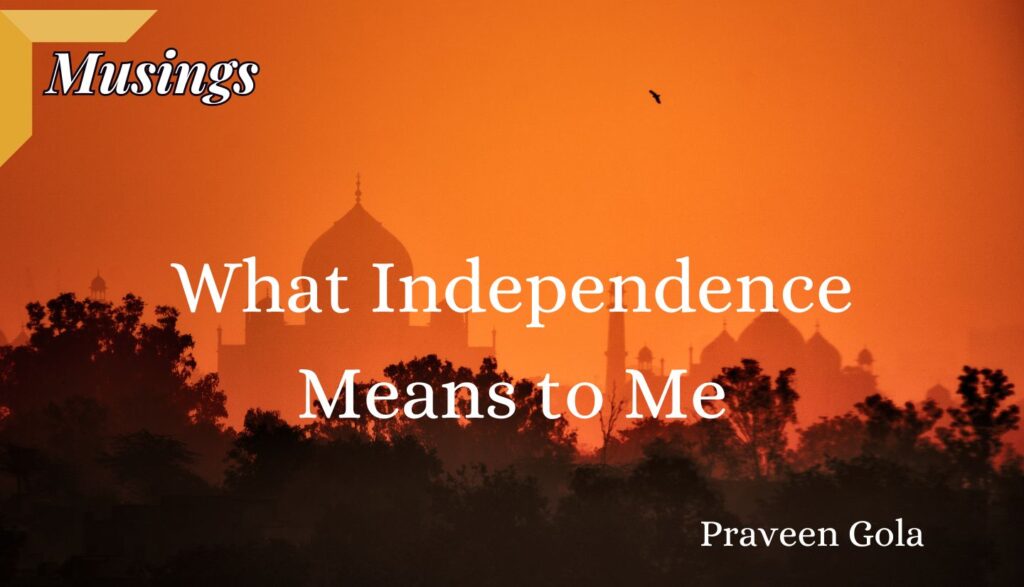
August 15 holds a special place in the hearts of millions, marking the day when India finally broke free from the shackles of British colonial rule in 1947. It is a day celebrated with fervor and pride, a day that symbolizes the triumph of resilience, unity, and the indomitable spirit of freedom. But beyond the historical significance, what does independence mean to me on a personal level?
A Legacy of Sacrifice
Independence, for me, is a poignant reminder of the sacrifices made by countless freedom fighters who laid down their lives for a cause greater than themselves. Leaders like Mahatma Gandhi, Jawaharlal Nehru, Bhagat Singh, and many unnamed heroes envisioned a free India, where every individual could live with dignity and self-respect. Their legacy is a source of inspiration, urging us to uphold the values of justice, equality, and liberty they fought for.
Personal Freedom and Responsibility
On a personal level, independence signifies the freedom to make my own choices, pursue my dreams, and express my thoughts without fear. It’s about having the autonomy to carve out my path, whether it be in my career, education, or personal beliefs. This freedom, however, comes with a profound sense of responsibility. It is about using my independence wisely, ensuring that my actions contribute positively to society and do not infringe on the rights of others.
The Power of Voice
Independence means having a voice that matters. It is the ability to speak out against injustices, to participate in democratic processes, and to hold those in power accountable. This right to free speech and expression is the cornerstone of a vibrant democracy, allowing for diverse perspectives and robust debates that drive societal progress. For me, it is a reminder to stay informed, engaged, and active in the civic life of my community and nation.
Cultural and Social Identity
Independence also encompasses the freedom to embrace and celebrate my cultural heritage. It means taking pride in the rich tapestry of traditions, languages, and customs that define India’s diverse society. This cultural freedom fosters a sense of belonging and identity, allowing me to connect with my roots while appreciating the multicultural fabric of our nation. It’s about cherishing our collective history and contributing to a future that respects and celebrates diversity.
Economic Empowerment
Economic independence is another crucial facet. It represents the opportunity to strive for financial stability, to innovate, and to contribute to the economic growth of the nation. It means having the freedom to explore entrepreneurial ventures, access education and employment opportunities, and achieve personal and professional growth. Economic independence empowers individuals and communities, fostering self-reliance and a sense of achievement.
Continuous Struggle and Hope
Lastly, independence is a reminder that the struggle for true freedom is ongoing. While political independence was a monumental milestone, the fight for social, economic, and environmental justice continues. It is about striving to eradicate poverty, inequality, and discrimination, and working towards a society where every individual has the opportunity to thrive. It’s about hope and the relentless pursuit of a better, more equitable world.
Conclusion
August 15 is not just a date on the calendar; it is a symbol of the enduring spirit of freedom and the relentless quest for justice and equality. Independence, to me, is a multifaceted concept that encompasses personal liberty, responsibility, cultural pride, economic empowerment, and the continuous fight for a just society. As we celebrate this historic day, let us honor the sacrifices of the past by committing ourselves to building a future where true freedom and dignity are a reality for all.
Praveen Gola

0 Comments